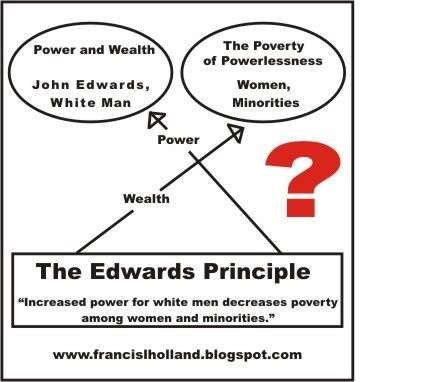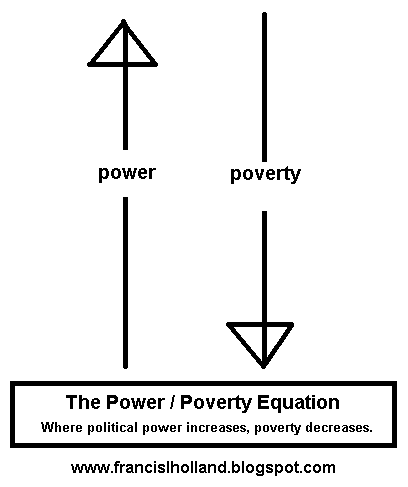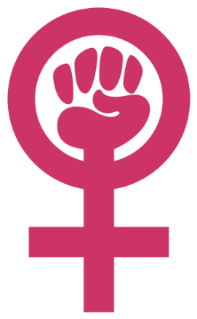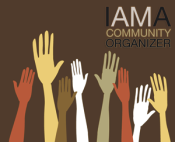Monday, October 26, 2009
(Editor's Note: The following post comes from Francis L. Holland. A fellow Afrospear member who blogs over at The Francis L. Holland Blog as well as an assortment of great sites.Checkout how he breaks it down as he attempts to broaden your world view a bit.)People here in Bahia, Brazil often ask me why I’ve come to live in a “Third World” country when I could live in the United States, where I was born, educated, and practiced law. I guess the simplest way to explain it is in terms of what drove me away, how I got to Brazil, and what makes me stay here.
When I lived in the United States, I was so depressed that I didn’t want to live anymore, even though I was becoming increasingly more recognized among immigration lawyers and non-profit program managers, was earning a good salary and drove a new car . . . I felt empty and lonely inside and didn’t want to be alive any more. I sought psychiatric help, but often the biggest barrier to care was the cheap-ass American insurance companies I had, even as a managing attorney in a large corporation. My doctors had to lie and say I was suicidal, even during weeks when I was feeling better, in order for my care to be covered.
Instead of just ending it all, I decided to do something equally dramatic. I enrolled in a USA university’s French language program and applied to learn French on the French Riviera, while living off student loans. In France, all of my medical care for my psychiatric illness was 100% covered by my French government insurance, which cost me about three hundred dollars a year. The Government also paid 30% of my apartment rent, because I was a student. I began to see more and more that the USA just isn’t “the best country in the world”, compared to what many other countries offer to their citizens and even to foreign students..
After 30 months in France, I was getting along quite well in French and was even enrolled in a doctoral program for international law. I had a doctoral thesis project and had passed a number of law courses taught entirely in French. Once again, though, I came to feel empty and purposeless in spite of the doctoral program, university friends, and an apartment near the beach. The depression and suicidal thoughts came back like a flock of locusts that won’t leave even after the fields have been picked dry.
One negative thing about my personality is that as soon as I learn to do something competently, then I don’t want to do it anymore. I constantly need new challenges, if only because confronting them distracts me from inner loneliness and emptiness. I couldn’t feel happy anymore in France. By 2003, with the Bush Administration’s ballooning war deficit devaluing the US dollar overseas, I just couldn’t afford to live in there anymore, and I thought that I had seen all that I would see there.
So, I researched countries where the US dollar was more valuable and took a bus to Krakov, Poland, where I contracted for an apartment much less expensive than the one in France, and returned to France to gather my things. (I was one of only three Black people I saw during a week in Poland, but I thought I could handle that.)
It was at this point that an Italian friend returned to France from a vacation in Brazil, accompanied by the most beautiful and enchanting young Portuguese-speaking girlfriend imaginable. Together they convinced me that I would be much happier in Brazil, where there is great Afro-Brazilian food, Samba, Pagode and Axé music and dance, Afro-Brazilian culture and heritage, and a uniquely Brazilian martial arts form called, Capoeira. The dollar went a long way, they assured me.
They convinced me that I would surely find the woman of my dreams in Brazil and begin a family, even with financial resources that in France were laughable. (A Coca Cola at a beach restaurant in Brazil costs one dollar, but it costs seven dollars in France, not including the fifteen dollar French charge just for occupying a beach chair.)
After some Internet research, I decided to give Brazil a chance. I sold everything I had (car, kayaks, law books, tools, stove and dishwasher) and was able to buy a ticket to Brazil, with two hundred dollars to spare. I couldn’t afford to travel for a mere visit to Brazil, while continuing to pay rent and monthly expenses in France. So, I had to jump into Brazil with both feet or not at all.
Brazil, I discovered, is a country of 200 million people, so large that it “occupies nearly half of South America” and is and is the fourth most populous democracy in the world. With a hundred million Black and brown people, (1/2 the population) Brazil has the largest Black presence outside of Africa itself, including:
7.4% classifying themselves as preto (black skin color) and 42.3% as pardo (brown color). The latter classification is broad and encompasses Brazilians of mixed ancestry. A caboclo is a term used in Brazil describing a person of mixed Indigenous peoples in Brazil and White people descent. In Brazil, a caboclo is a specific type of mestizos . . . making the total 49.5%. The largest concentration of Afro-Brazilians is in the state of Bahia where over 80% of the people are descendants of Africans. Absolute Astronomy
If you have never been to a part of the world where Black people and our culture are in the majority, it’s hard even to imagine how freeing it is. It’s wonderful to walk into a store or restaurant and not have anyone wondering, “What is HE doing here,” because most of the people are Black and there is nothing remarkable about your skin color. It’s wonderful to have all commerce stop for a week in February for Carnival, which is an intense national multicultural celebration of Black culture.
When I arrived in Brazil, a childhood friend who is now a psychiatrist diagnosed my mental illness as “post-traumatic slavery syndrome,” exacerbated by the constant pressure of being Black in the USA. Like a burn victim who can’t recover until he gets out of the fire, I couldn’t begin to recover from living in United States until I was living somewhere else. I thought he was crazy, but it makes sense to me now.
In Bahia, where 80% of the population is Afro-descendant, the official culture is Afro-Brazilian, with Afro-Brazilian dance and music daily featured on television, and real discussions occurring about what this culture means and how it evolved, and how it is a force for growth now and in our future. Here, Afro-Brazilian music and beats play on the streets, in beachside restaurants, in clubs . . . virtually everywhere.
Lunches and dinners of black beans and rice, okra and sweet pumpkin, fried fish, grits and jambalaya would make many Black Americans feel more at home here than in my native Massachusetts. And the variety of fruits here is simply amazing.
Brazil still has obvious skin-color aroused problems, but it also has laws to protect Blacks from the worst affronts to our dignity. Article 3, Sections XLI and XLII of the Brazilian Constitution say:
The Law will punish all discrimination against fundamental rights and liberties. [including the fundamental right not to be subject to discrimination.] The practice of racism constitutes a crime not subject to bail, and subject to imprisonment, according to the terms of the law.In Brazil, whites have no First-Amendment “right” to call Blacks “monkeys” or the “N” word, or to insist that we are genetically inferior. Instead, that sort of behavior elicits the virtual guarantee a swift arrest, particularly when there are witnesses or other convincing evidence that the law against “racism” has been violated.
(Compare that to my experience walking with a white woman in Providence, Rhode Island, and having two white men scream from a pickup truck, “What are you doing walking with that “N” word?!” In the United States, I had no legal recourse; those whites had a Constitutional right to say that to us, which makes me strongly question the “wisdom” and intent of the Foundering Fathers.)
In this part of Brazil, it is so common to see multi-colored groups of tourists and bi-chromatic couples that the term “interracial” doesn’t even make sense here. At least 50% of the population has “interracial” ancestry and comes from a polychromatic family. So, to see a beige and a brown person together and call them “interracial” is like saying San Francisco and Los Angelos are interstate cities. With so many white-skinned Brazilians who have one Black parent and a Black cousin, the strict belief in “race” doesn’t carry the weight that it does in the United States. My kids say its “racist” to consider differences in skin color when deciding whom to date and marry.
The relationship between Blacks and police is different in much of Brazil as well. In the US, we Blacks immediately sense trouble when we see police officers, regardless of their skin color. When whites say, “The police are your friends,” we just roll our eyes in disgust. In Brazil, both the death penalty and life imprisonment are unconstitutional.
In the state of Bahia, by contrast, the majority of police officers are Black, and they walk among the rest of us like neighbors and friends, rather than like the occupying force they are in our United States communities. For example, there are four SWAT-like police officers who live in our condominium complex and all are Black. They carry machine guns and automatic weapons, but we are not their targets. They are our neighbors – not beasts of prey who travel to the inner-city from their suburban homes each day.
It took me probably a year in Brazil to stop automatically fearing police, but now I see Brazilian police as citizens, like members of any other profession. Young and handsome Black men and women. I have a close friend who is graduating from the police academy, sponsored by another mutual friend of ours. In Brazil, I don’t feel like, as a Black man, I am being hunted, targeted and under siege anymore.
Blacks are better integrated into Brazil’s voting population, and voting is far easier here than it is in the United States. In fact, it’s a requirement that Brazilian citizens vote, or explain why they were unable to do so. Therefore Brazilian politicians have to spend their efforts convincing the electorate, rather than manipulating and discouraging Black turnout on Election Day.
The poor seem as likely to vote as the rich, and the Blacks as likely as whites, which is a fact manifested in the election of President Lula Ignacio Lula da Silva, who once lost a finger when he was a machinist; who went on to lead the machinists’ union; and then won the presidency on his third candidacy. If Lula has his way, the next president of Brazil will be the first woman president, and will continue Lula’s social policies, including free medical care for all, and designated seats for Blacks and the poor at the nation’s universities.
I’m not as lonely here. In 2005, I married an Afro-Brazilian woman, and I have three adolescent step-children, God help me. I’ve shared with my wife my and my family’s experiences with color-arousal in the United States, but my wife asks me not to tell her the news I report in my Police Brutality Blog and Electrocuted While Black blog. She says hearing those accounts just leaves her angry and disgusted.
As someone who suffers from chronic depression, readily accessible medical care and medication are essential to me. In Brazil there is a national government system of hospitals, clinics and pharmacies that provide free medical care regardless of who you are (Brazilian or foreigner) and without inquiring about income, social status, or requesting payment of any kind.
If you have a serious car accident in Brazil with multiple injuries, you can be treated at a Government hospital without any insurance and without receiving a bill afterward. Health workers even visit patient’s homes to remind them of appointments.
Because I struggle with depression, I need to see a psychiatrist at least every two months for a fresh medication prescription. Unlike the United States, where there were co-pays and limits on treatment visits, and where I had to pay for medications out-of-pocket, the doctors at the neighborhood clinics here see me here for free, and I receive the medications I need for free at the same government clinics. Nonetheless, because of poverty and its attendant risk factors, Brazil’s overall infant mortality rate is almost four times higher than that of the United States. And abortion is illegal.
Many Brazilians idealize the USA, mostly because they’ve never had to actually live there. They would never imagine that USA for-profit hospitals secretly dump uninsured patients on the streets in front of homeless shelters. They couldn’t imagine waiting six weeks to see a dentist or paying a thousand dollars for a root canal, since dentists here have walk-in availability and charge only $150.00 for a root canal.
Instead of paying through the nose in the United States for dental care, it’s often cheaper to fly to Brazil, have a dental vacation, and return home with money to spare. Brazilians couldn’t even imagine going to the emergency room for a broken arm and getting a five thousands dollars invoice afterward. Invoices and credit card swipers don’t exist in Brazil’s national health care system.
There’s something about the dignity and creativity of Brazilians that impresses me: Poor Black people have far more autonomy in Bahia than in the United States. Many Blacks who would be suffering unemployment in the US with their level of education are instead running their own businesses in Bahia, selling and fixing bicycles, motorcycles and cars, owning restaurants, bed and breakfasts and Internet cafés, making and selling art works from jewelry to African-inspired clothing and sculptures . . .
The imagination and self-determination of Afro-Brazilians makes me proud to have brown skin, when I see us selling fresh coconut water, carving human heads from coconuts, and using dried coconut shells to make and sell colorful necklaces and earrings. Instead of sound trucks, humble Brazilians have massive sound systems mounted on bicycles. They advertise their clients’ wares and effectively have their own businesses.
Even though I lived in the US for 37 years and in Brazil for only five, I know far more self-employed Blacks here than I did in the United States. In Bahia, there are fewer rules and less regulation to prevent a person from starting a business in his home or on the street.
Brazil reminds me of my African roots. If you want to “Free Your African Hair”, there are self-employed men and women who work at booths or stools in the streets of Bahia, waiting to braid your hair for twenty dollars or less. They also braid white tourists’ hair.
Yes, Brazil has its problems. Basic sanitation like sewers and running water are lacking in the poorest neighborhoods of many cities, and criminals parade with impunity. Public education is sometimes as lousy and precarious as it is in US cities, and many young people who can’t find jobs turn to selling drugs instead, with the attendant murders and other crimes.
The murder rate is four times higher in Brazil than in the US, according to the US State Department, with heavily armed drug cartels battling each other and often defeating police on the streets of São Paulo and Rio de Janeiro. These cartels burn buses (after emptying them) and destroy the police’s armored cars and helicopters with high-powered rifles and grenades. Innocent Brazilians die daily when they’re caught in the crossfire.
Just as the rich in the USA help themselves to public monies through the military-industrial complex, and prison industry, much of Brazilian state and national budgets is lost to embezzlement by government officials and their associates. Hundreds of millions of dollars just disappear while local mayors literally build castles for themselves and fly about in helicopters, taking their families to Europe on their Government expense accounts. But Brazil is not at war with any country, and the rich steal peacefully – not by starting wars of imperialism.
Brazil is a lot of fun and Carnival is coming. If you visit Brazil, here are a few tips:
If you come to Brazil, bring a little extra money and get all of your root canals and crowns done in a week or two, for 20% of what it would cost in the United States.What still needs a world of work here is national television. There is one television show with twenty women dancing behind the host, and sometimes only one of the twenty is has brown skin. An advertisement for the new Salvador Shopping Mall in the capital of this 80% Black state has over fifty photos of models as shoppers, but none of the shoppers are Black. How does that happen in a country that is half Black?
Most stories of tourists losing their passports and money start with the phrase, “I was just having a few beers . . .” When you’re navigating a new culture and language it’s better to do so sober, like flying a plane.
In Brazil, drug dealers will sell you baking soda as blow, and then kill you if you are foolish enough to return and complain.
Prostitutes may well drug you and then take all of your money. Thieves and com men target foreigners who look, dress and act like wealthy tourists, so stop at a cheap clothing store and dress yourself up like the humble Brazilians you see on the street. If strangers call out to you, “amigo” or “Americano”, it’s best to get the hell away from them as quickly as possible. They know what (they think) you have, and they want it.






